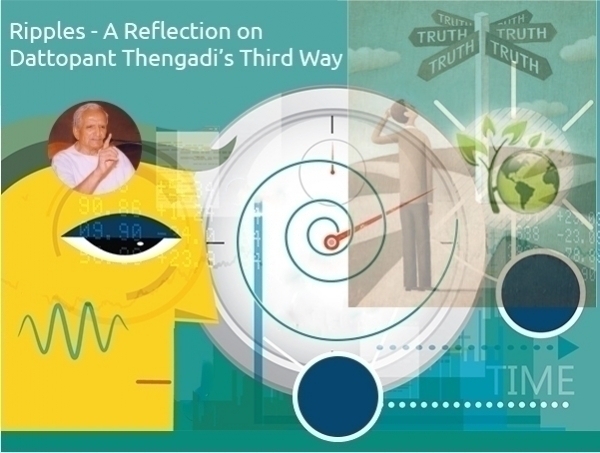Ripples A Reflection On Dattopant Thengadi's Third Way Part 52: South-South co-operation
06 Aug 2022 11:33:50
I have been reflecting in my own way on Dattopant Thengadi Ji's Third Way. I present these small "ripples" that it has caused in my mind in a series. I am glad it has found its resonance in many thinking minds alike. I hope the readers have read the earlier article in the series before moving ahead.

Also Read: Ripples A Reflection On Dattopant Thengadi's Third Way Part 51
In the book by Dr. V. R. Panchamukhi ' South-South Co-operation in South, South-East and East Asia: A Perspective' published in 1992, he noted three aspects that need to be carefully paid attention to.
1) Potential areas of complementarities are to be identified.
2) The constraints to need to be identified to be able to develop these potentials.
3) The measures to clear away the constraints and facilitate the potential of co-operation are to be recommended
Many renowned economists together researched the essential areas related to this issue, and detailed analysis was put forth.
The efforts in this direction were going on but some weaknesses too were visible. The South commission report noted that weak organization and lack of institutionalized technical support are the areas that require more focus.
Dattopant observed that contacts at various levels definitely help in realising such objectives. Of course, political will is an important component.( Reference ' Caracas of new Delhi' by Brajendra Nath Banerjee) Dattopant urges third-world countries to undertake this mission.
When he focused on our country he defines the objective to reach the pinnacle of the glory.
Dr Radhakrishnan perceived renaissance as ' the eternal principles reborn to be applied to a new life in new ways '. So it is just not remembering the past glory but to reach that state again, is the goal.
Dattopant clearly states that the concept of 'Param Vaibhavam ' ( Pinnacle of Greatness) is to be comprehended in its real sense. The goal is not just to become a superpower, as all superpowers were always short-lived. He discussed it in detail using the Indian as well as many examples from world history.
The concept of national sovereignty is undermined by international fundamentalism, transnational terrorism, international financial corporations, and underground empires of narcotics or drugs. Even voluntary transnational bodies related to the environment, human rights, civil liberties, arms control, etc to have their role in this.
West-dominated thinking mistakes states for nations. The identity of aboriginal communities, nomadic tribes, and ethnic groups is not recognized which are dispersed over many countries.
It is necessary to understand the expression ' Param Vaibhavam' carefully.
(The article was published in the weekly 'Organiser' in 1994) and Reach for Param Vaibhavam was published in the weekly 'Blitz' Mumbai in 1994)